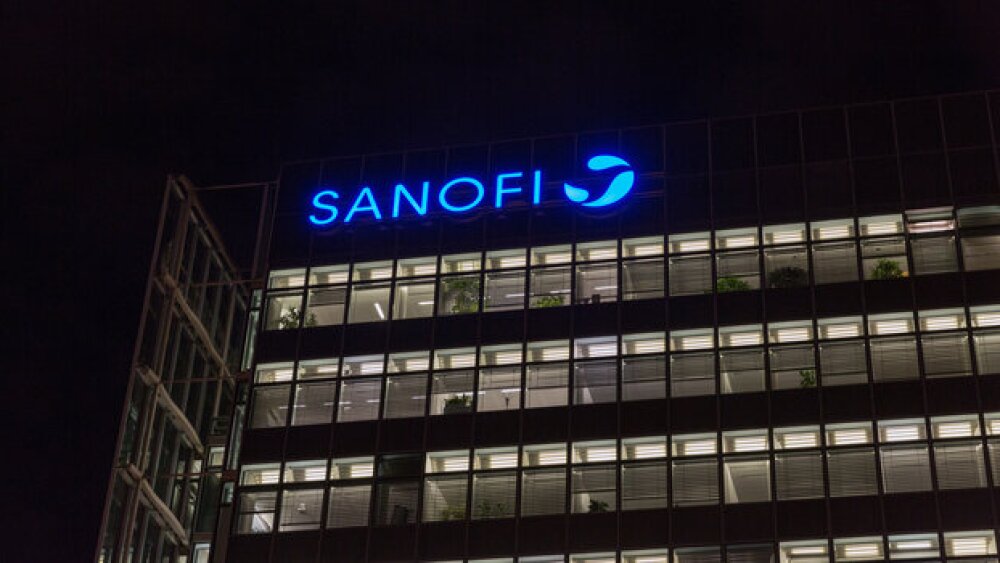Biopharma and life sciences companies from across the globe provide updates on their businesses and pipelines.
Scotland’s NuCana plc is one step closer to a potential New Drug Application for Acelarin, a ProTide transformation of gemcitabine in development for biliary tract cancer.
This week, the company based in Edinburgh announced it has completed enrollment in its Phase III NuTide:121 study. The enrollment completion will allow the company to conduct a second interim analysis, which is expected to occur in the second half of this year. The first interim analysis will be conducted in the first half of 2022.
When the analyses are conducted, NuCana is hoping to see a statistically significant improvement in the objective response rate (ORR) in order to potentially achieve accelerated approval of an NDA in the U.S. In the previous ABC-08 study of first-line patients with biliary tract cancer, Acelarin plus cisplatin achieved an ORR of 44% among the evaluable population. That compared favorably with the ORR of 26% gained among evaluable patients treated with gemcitabine plus cisplatin in the ABC-02 study.
At the first interim analysis, the company believes that an improvement in ORR of approximately 14% or more in the Acelarin plus cisplatin arm compared to the gemcitabine plus cisplatin arm would be statistically significant. Due to the larger number of patients included in the second interim analysis, an improvement in ORR of approximately 9% or more would be statistically significant.
There are currently no agents approved for the first-line treatment of patients with biliary tract cancer.
Elsewhere around the globe:
Charles River Laboratories– Charles River announced the expansion of its fit-for-purpose plasmid DNA and viral vector development and manufacturing capabilities in Europe to support customers’ growing needs and safeguard future supply. The company is opening a 17,000 square-foot facility in Cheshire, a U.K. hub for the life sciences. The facility will quadruple Charles River’s manufacturing capacity for plasmid DNA, a critical starting material for immune-oncology and CRISPR-based therapies.
Biotage AB – Sweden’s Biotage is advancing sustainability programs. The company has made a commitment to improve the health and wellbeing of its customers and employees through green solutions.
Triphase Accelerator – Based in Toronto, private drug development company Triphase announced updated results from its Phase I study of TRPH-222 in heavily pre-treated patients with relapsed and/or refractory (R/R) B-cell non-Hodgkin’s lymphoma (NHL). TRPH-222 is an investigational antibody-drug conjugate (ADC) designed to deliver the microtubule-inhibiting payload maytansine to CD22-expressing cells. It employs a novel third-generation stable linker-conjugation technology. Data has shown that, overall, TRPH-222 has a favorable safety profile.
Noema Pharma – Switzerland’s Noema Pharma has dosed the first patient in its Phase IIb study of mGluR5 inhibitor NOE-101 in trigeminal neuralgia (TN). The Phase IIb LibraTN study is a multi-center, 24-week, prospective, double-blind, randomized-withdrawal, placebo-controlled trial. Data is expected to be reported in the first half of 2024. TN is a form of neuropathic pain associated with nerve injury or nerve lesion.
LUMICKS – Based in the Netherlands, LUMICKS announced it is introducing a new innovative C-Trap to its portfolio. The C-Trap portfolio is now complemented by the new C‑Trap ‘Edge,’ which is dedicated to supporting important surface related applications, such as cytoskeletal structure & transport.
PixCell Medical – Israel-based PixCell has been awarded a grant from the International Health-Tech Pilot Program. The company will use the grant funds to validate additional applications for its HemoScreen hematology analyzer.
TargED Biopharmaceuticals – Privately-held TargED, which is based in Paris, raised €39 million (about $44 million) in a Series A financing round. Funds will be used to support the development of two initial indications, acquired Thrombotic Thrombocytopenia Purpura (aTTP) and Acute Ischemic Stroke (AIS). TargED’s lead product, Microlyse, is a first-in-class proprietary clot-busting compound that binds to a protein present in all forms of thrombosis. Microlyse is the first compound to achieve targeted enzyme delivery, using a single domain antibody (VhH), directly to blood clots. The financing round was led by an international syndicate with equal contributions from Andera Partners, Fund+, Hadean Ventures, Inkef Capital and Sunstone Life Science Ventures. Other contributors include FIRST (Managed by BioGeneration Ventures), Curie Capital and Utrecht Health Seed Fund.
RAMM Pharma Corp. – Toronto-based RAMM has expanded its European operations with full ownership of Canapar Corp. RAMM said it is well positioned to become one of Europe’s largest vertically integrated cannabis companies. Canapar’s state-of-the-art extraction facility is the largest in Europe and has been custom-designed to produce active compounds in a range of registered cannabis-based products.
Immunovia AB – Based in Sweden, Immunovia announced that the peer-reviewed study that was conducted to validate the clinical performance of IMMray PanCan-d had been published in Clinical and Translational Gastroenterology. This study aimed to validate the overall clinical performance of the IMMray PanCan-d test across all patient samples. Additionally, the study was designed to better understand the test performance in Lewis null (le/le) individuals who cannot express CA19-9. The results demonstrate that the IMMray PanCan-d blood test can detect pancreatic ductal adenocarcinoma with high specificity (99%) and high sensitivity (89%) in stage I/II when excluding individuals with low levels of CA19-9.
OKYO Pharma – London-based OKYO won a patent in the United States for “Methods and Systems for Designing and/or Characterizing Soluble Lipidated Ligand Agents.” This patent contains key claims covering OK-101 to treat neuropathic pain. OK-101 is OKYO’s lead pre-clinical compound and is a novel long-acting anti-inflammatory drug candidate being developed to treat patients with dry eye disease (DED). The company anticipates moving straight into Phase II studies in the fourth quarter of 2022.
Complement Therapeutics – England’s Complement Therapeutics secured €5 million in seed funding from BioGeneration Ventures (BGV) and Forbion. The funds will be used to address unmet needs in complement mediated diseases such as geographic atrophy due to dry age-related macular degeneration.
Dotmatics – Also based in the U.K., Dotmatics announced the release of Dotmatics Platform 22.1, which underpins the company’s web-based scientific applications and allows them to work together to provide users with seamless end-to-end workflows. The update will ultimately lead to quicker and better-informed data-driven research decisions.
Recce Pharma – Australia’s RECCE dosed the final three patients to receive the 500 mg dose in the Phase I intravenous (IV) clinical trial of RECCE 327 (R327). Following this milestone, an Independent Safety Committee will review the final data set of the third cohort and is then expected to clear the fourth higher dose study cohort per approved protocol. Recruitment for that cohort is underway.
ENA Respiratory – Also based in Australia, ENA Repository announced a partnership to develop INNA-051 in people with chronic lung diseases. In a Phase I study, INNA-051 was found to be well-tolerated, and the company expects to release additional data this year. Phase II studies to confirm the pan-antiviral potential of INNA-051 are expected to begin soon.
Ayala Pharmaceuticals – Based in Israel, Ayala announced it completed patient enrollment in Part A of the Phase II/III RINGSIDE study assessing AL102 in desmoid tumors. AL102 is a selective, oral gamma-secretase inhibitor (GSI). The company expects to report interim results from Part A by mid-2022.
Horizon Therapeutics – Ireland’s Horizon has enrolled the first patient in the Phase III OPTIC-J study in Japan evaluating teprotumumab for the treatment of active TED, which can potentially cause vision-threatening rare autoimmune disease that can cause proptosis (eye bulging), diplopia (double vision), eye pain, redness and swelling.





